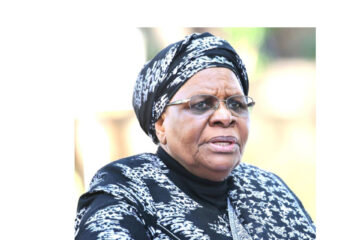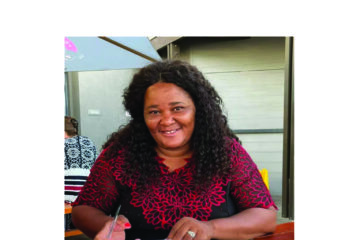Niël Terblanché
The Parliamentary Standing Committee on Education, Science, Information and Communication Technology, and Youth Development recently convened a series of meetings with key stakeholders to explore strategies for ensuring uninterrupted access to education, particularly in remote regions.
These discussions also highlighted the importance of integrating arts, culture, and heritage into the national education system.
During the engagements, the committee focused on the pivotal role of network coverage in providing consistent educational opportunities to students in remote areas.
Adequate network coverage is essential for bridging the educational divide, allowing students to access digital learning resources and participate in online classes, thereby ensuring that no child is left behind due to geographical constraints.
A significant portion of the dialogue centred around the integration of arts, culture, and heritage into the education system.
The stakeholders emphasised the need to mainstream these elements, not just as extracurricular activities but as core components of the curriculum.
This approach is aimed at enriching the educational experience, fostering creativity, and ensuring that future generations have a strong sense of cultural identity and appreciation for their heritage.
The integration of culture and the promotion of local languages in our education system are crucial for strengthening national identity and social cohesion.
The committee discussed various strategies with the ministry, focusing on how to incorporate cultural education into the curriculum effectively.
The aim is to create a more inclusive and representative educational framework that celebrates the country’s diverse cultural landscape.
In addition to education and culture, the committee also received a briefing from the Ministry of Sports, Youth, and National Service on the state of youth unemployment and the role of youth services in promoting economic empowerment.
The Youth Credit Scheme, which provides funding to empower young people to start their own businesses and contribute to the economy, is one of the ways the ministry is supporting youth projects.
The discussions underscored the importance of a holistic approach to youth development, which not only addresses unemployment but also promotes the active participation of young people in various sectors, thereby fostering a well-rounded and empowered society.
Youth services play a crucial role in our national development. By supporting youth entrepreneurship and employment, we are not only tackling unemployment but also fostering innovation and economic growth.
The committee’s engagements reflect the government’s commitment to addressing critical issues in education, culture, and youth development comprehensively.
By ensuring that education is accessible to all, integrating cultural education, and promoting youth empowerment, Namibia aims to build a more inclusive and prosperous future for its citizens.
These efforts are part of a broader national strategy to ensure that education and development opportunities are available to every Namibian, regardless of their location.
The Standing Committee on Education, Science, Information and Communication Technology, and Youth Development continues to advocate for policies and initiatives that support the holistic development of the nation’s youth and the preservation of its cultural heritage.
The committee’s ongoing dialogue with stakeholders across various sectors underscores the importance of a unified approach to national development, ensuring that all citizens can contribute to and benefit from the country’s progress.
With regard to the challenges posed by digital inequality and youth unemployment, such proactive measures are vital for fostering a resilient and empowered society.



